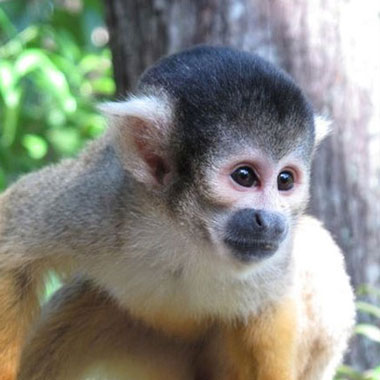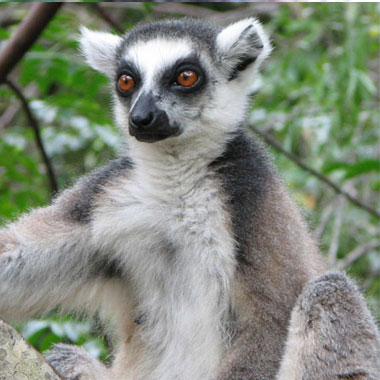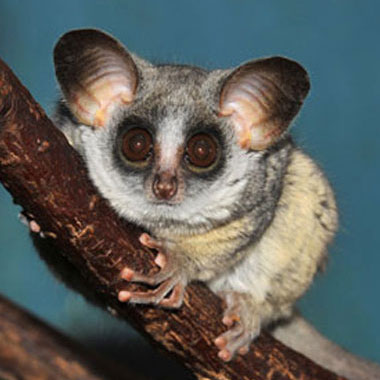Pet Monkeys...Really A Good Idea?
Many interesting monkeys have come through our doors. Some were kept as pets, others rescued from medical research facilities and zoos. It is estimated that roughly 500 families in South Africa alone keep monkeys as pets, with that number still on the rise. But the question looms: do they actually make good pets?
I'll introduce you to Joyce, for example. A young female capuchin, she was rather pampered with child-like paraphernalia; a dress and a small hat around her head. Cute, indeed. She had been with her "foster" family since only two months old, bought straight from a breeder.
The couple who owned her did not have children, and so decided to substitute the missing link with a primate, albeit a bit smaller...and with sharper teeth.
This newcomer became the star-attraction to the family. Friends of theirs would marvel at the young one's antics, such as when she nicked R50 from one gentleman's pocket, and when she climbed and hung by her tail from the curtain rails. How fun! How curious! How fascinating! How intelligent!
Intelligent, certainly. Capuchins in particular have long been known to be some of the brightest of all primates (other than ourselves, but that's questionable...). They are typically used in films and TV commercials, and in circus acts. There is no doubt that their kleptomania is triggered by a fair bit of grey matter usage. But that's the problem. They are smart, and they can outsmart you.
Little Joyce quickly began to up-the-ante of her favourite household tricks. She became quite a nuisance, in fact; tearing table napkins and stealing just about anything she could: kitchenware, sunglasses, watches, anything shiny and new, and she didn't fancy the pot-plants either. Needless to say, her "parents" became quite concerned.
As monkeys mature, so do their motivations. Have you ever owned parrots? Do you remember how your beautiful male African Grey loved your wife but absolutely despised you? Monkeys do the same. They tend to favour family members of the opposite sex, or in the least, the one that brought them up from childhood.
Joyce's owners decided to hold a family-gathering at their welcoming abode: cousins, uncles, grandfathers, grandchildren, aliens, you name it. A feast was prepared, and the bouncing capuchin was let free to entertain the masses. Joyce had by now developed quite a crush on the husband of the family, following him around wherever he went, watching whatever he did, eating his breakfast when he wasn't looking (I'll get into dietary requirements later), and trying to slip the front door as he left for work in the morning. If anything, he felt honoured by this loving behaviour. Joyce even sat on his shoulder in front of the seated guests, excited by all the manic attention. A rather fitting family addition, of course. And then it turned for the worst.
In all the exaggerated hubbub of the situation, a small child slowly crept up to the monkey, probably pretending to be a monkey himself. He reached out for Joyce's tail, grabbed it and tugged away for only a second, a second too long...
Joyce did not agree, whipped around and bit him sternly on the shoulder, the astonished guests looked on in shock, and Joyce ran up the curtain rail and covered her head in shame. It was all over in a flash.
From then on, it was decided that she would be contained in a 2m x 1m bird cage, and not allowed out for any time of the day. This was a solution to the distressed family, but not to Joyce.
Primates have been known to suffer intense psychological maladies, quite similar to ours. Prisoners become terminally depressed because they are kept in dark, sun-deprived quarters with minimal human interaction. Bias aside, do you recall your last visit to the local zoo? Do you remember that monkey that sat in a corner with its tail between its legs, or that leopard that couldn't stop pacing from one end of the cage to the other? Birds with a few feathers missing? Tell-tale signs of captive anxiety. Try keeping yourself locked in a reinforced wire structure for a few days, and see how that feels!
Monkeys, however, have a solution to that problem: suicide. No, really. Humans have ways of doing that, too. And so, before you know it, little Joyce is at huge risk.
Primates like her are highly social animals that require group enrichment and need to live within very specific and developed family structures. Isolation is not included in their resume. Monkeys have complex dietary needs. Many of them are omnivore-frugivores, so unless you have a breeding farm of mealworms and a steady supply of crickets and maggots in your garage, as well as an orchard out back, you may want to think twice here. Most people get away with protein mixes and vitamin supplements that work some of the time, but are somewhat surprised that their monkey is looking feeble and skinny come winter. What about the carbs?
I say, therefore, that No, monkeys do not make good pets. They should not be bought out of the pet trade for amusement, nor should they be bred and imported for the purpose. Should you consider getting one, think twice about what you are contributing to. Your dollars will encourage the crude shipment of these primates from the exotic origins they call home, to a city apartment they call hell. Which would you prefer?

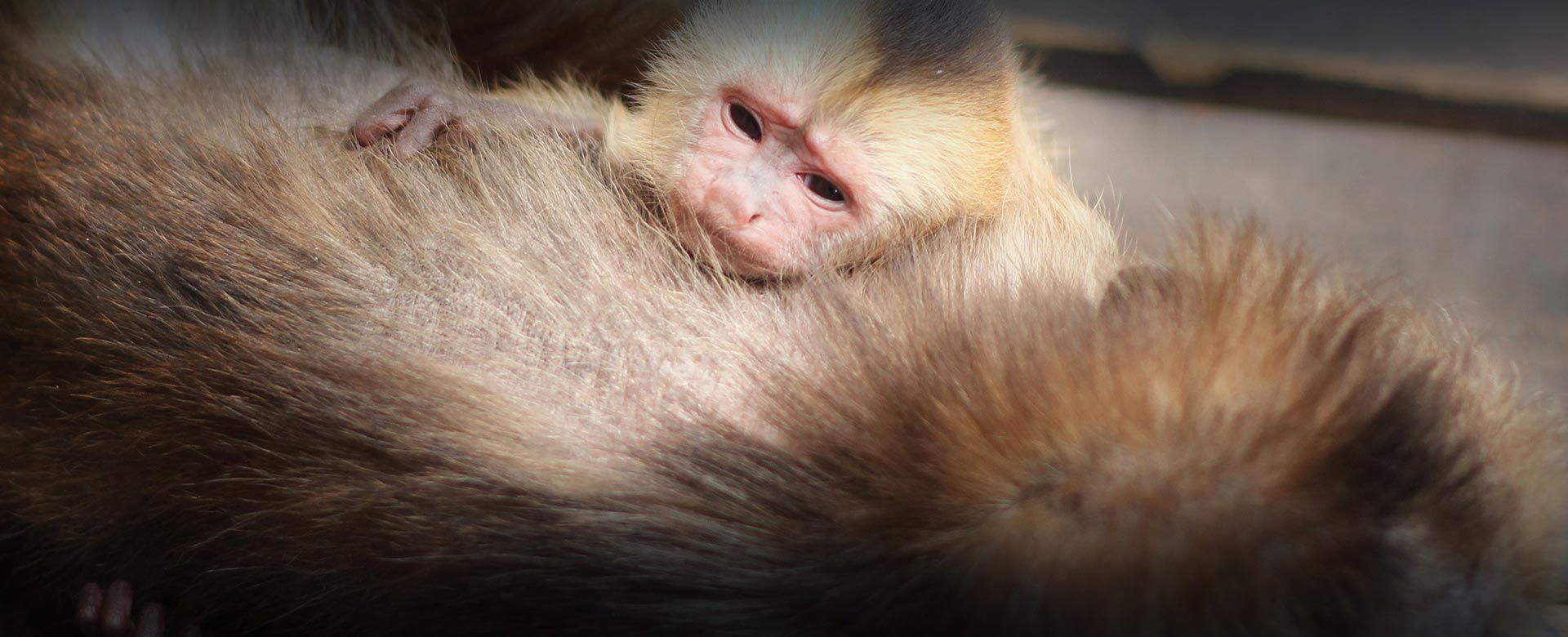
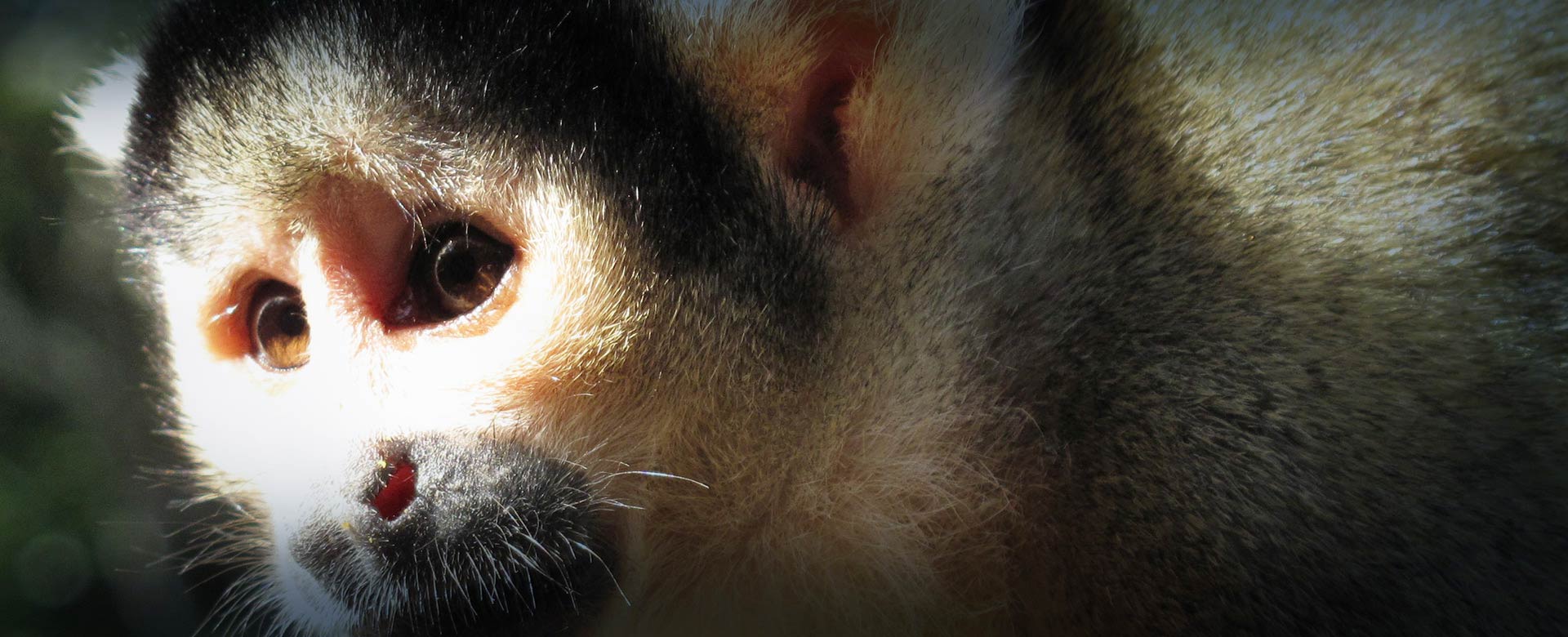
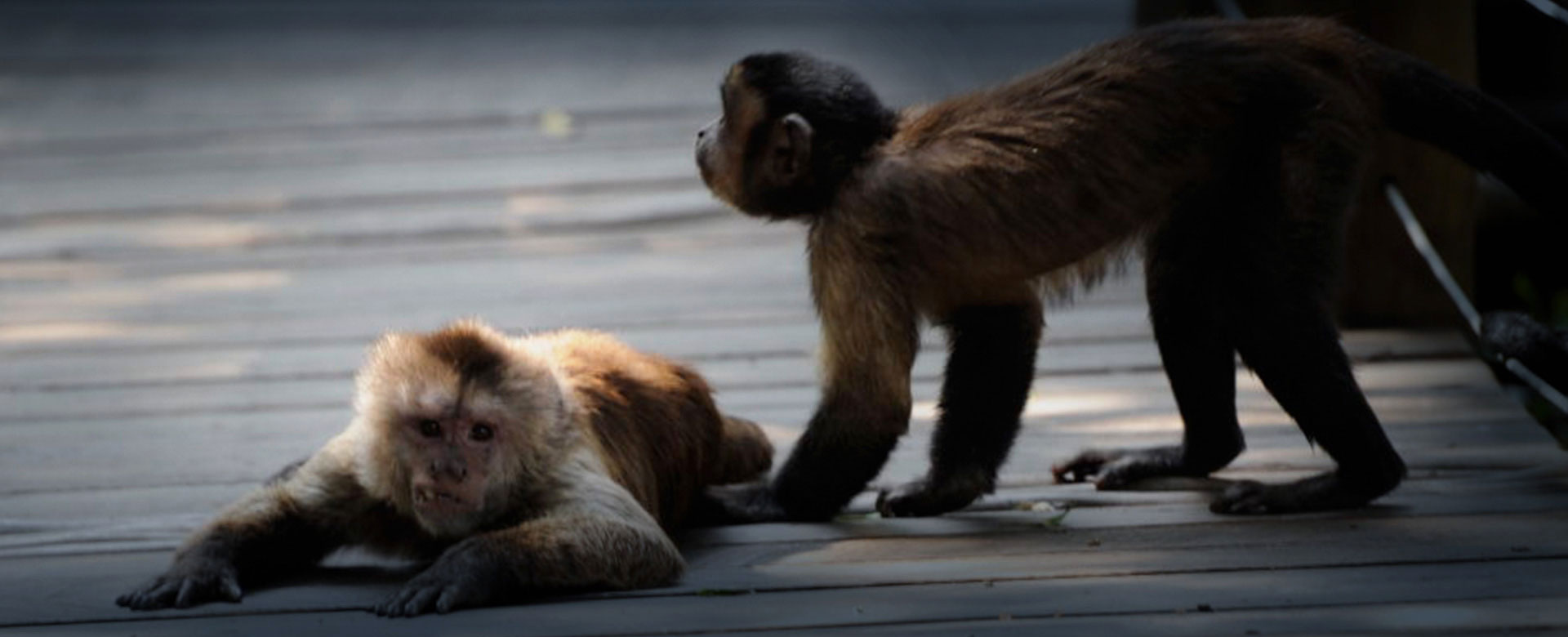


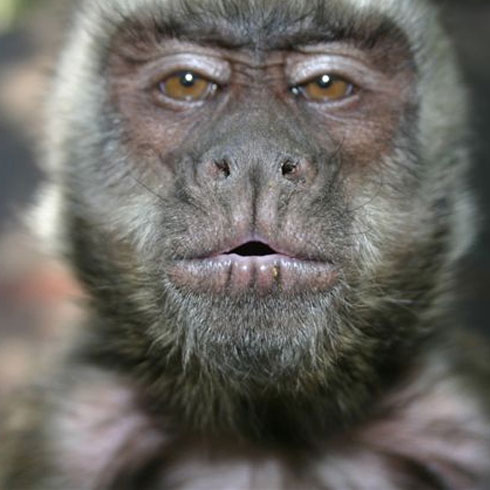 Conservation in Southern Africa is rapidly becoming unsustainable without the active involvement of the community, especially the younger, more active generation. The Bushbabies Monkey Sanctuary and The Elephant Sanctuary group strongly believe that we have to get the younger members of communities involved to instill a passion for the environment and wildlife in them through education.
Conservation in Southern Africa is rapidly becoming unsustainable without the active involvement of the community, especially the younger, more active generation. The Bushbabies Monkey Sanctuary and The Elephant Sanctuary group strongly believe that we have to get the younger members of communities involved to instill a passion for the environment and wildlife in them through education.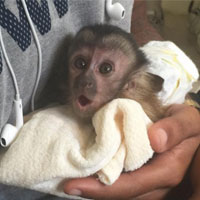 I'll introduce you to Joyce, for example. A young female capuchin, she was rather pampered with child-like paraphernalia; a dress and a small hat around her head. Cute, indeed. She had been with her "foster" family since only two months old, bought straight from a breeder. The couple who owned her did not have children, and so decided to substitute the missing link with a primate, albeit a bit smaller...and with sharper teeth.
I'll introduce you to Joyce, for example. A young female capuchin, she was rather pampered with child-like paraphernalia; a dress and a small hat around her head. Cute, indeed. She had been with her "foster" family since only two months old, bought straight from a breeder. The couple who owned her did not have children, and so decided to substitute the missing link with a primate, albeit a bit smaller...and with sharper teeth.